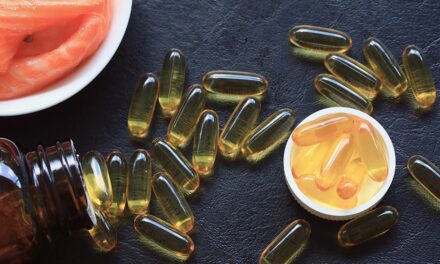Vitamin C is a water-soluble vitamin that is necessary for the synthesis of the structural protein collagen, the neurotransmitter norepinephrine, and the amino acid carnitine. It is also involved in cholesterol metabolism and is a significant antioxidant. In addition, vitamin C plays a profound role in the health of the immune system.
WHAT IS IT?
Vitamin C, also known as ascorbic acid, is a water-soluble micro-nutrient. Human beings cannot manufacture their own vitamin C and must rely on outside sources, including food and supplements, to obtain it. Other forms of vitamin C, which may be found in supplements include, ascorbyl palmitate (a fat-soluble form) and mineral ascorbates such as calcium ascorbate.
Vitamin C is found in different fruits and vegetables. Although the vitamin C content varies depending upon the produce,1 about five servings (2½ cups) of fruits and vegetables should average out to about 200 mg of vitamin C. Rich sources of vitamin C include sweet red peppers, strawberries, orange juice, grapefruit juice, oranges, and broccoli. Other good sources include grapefruit, tomatoes and potato.
WHAT DOES IT DO?
Vitamin C is best known for its role in the synthesis of collagen, a connective tissue protein used as a structural component of blood vessels, tendons, ligaments, and bone. A deficiency of vitamin C leads to the deficiency disease “scurvy,” characterized by insufficient collagen production. This water-soluble vitamin is also needed for the synthesis of: 1) the neurotransmitter norepinephrine, which performs critical brain function including an effect on mood, and 2) the amino acid carnitine, which is essential for the transport of fat into cellular mitochondria, where the fat is converted to energy or ATP.2 Vitamin C may also be involved in the metabolism of cholesterol to bile acids, which may be important for blood cholesterol levels and the incidence of gallstones.3
Another significant function of vitamin C is the important role it plays as an antioxidant, protecting vital molecules in the body from damage by free radicals and reactive oxygen species. These molecules include proteins, lipids (fats), carbohydrates, and nucleic acids (DNA and RNA). Vitamin C also plays a complementary role with other antioxidants, such as vitamin E, helping to regenerate them from their oxidized form back into their reduced (active) form.4,5
Vitamin C also plays a profound role in the health of the immune system, stimulating the production and function of white blood cells, including leukocytes, neutrophils, lymphocytes and phagocytes.6,7,8,9,10,11,12 In addition, research has demonstrated that supplemental vitamin C increases serum levels of antibodies13,14 and C1q complement proteins.15,16,17 Also, vitamin C has been shown to increase interferon levels in vitro,18 and research on supplemental vitamin C and the common cold suggests that it promotes an antiviral effect in humans.19
WHO SHOULD USE IT?
Given that humans do not make any vitamin C themselves, everyone would do well to supplement with vitamin C. This is especially true during times when additional immune support is desirable—such as during cold and flu season.
DOSAGE/TIMING
The RDA for vitamin C is 90 mg for men and 75 mg for women. The RDA for men and women smokers is 125 mg and 110 mg, respectively. However, studies conducted at the National Institutes of Health indicated that plasma and circulating cells in healthy subjects attain near-maximal concentrations of vitamin C at a dose of about 400 mg/day—a dose much higher than the current RDA.20 This suggests that a daily intake of 400 mg is advisable.
Vitamin C can be taken with or without food, so the timing is not critical.
ADVERSE REACTIONS/ INTERACTIONS
An adult dose of up to 10 grams of vitamin C daily has not been found to be toxic or detrimental to health. High dose of vitamin C, however, may induce diarrhea. The concept of “bowel tolerance” describes utilizing vitamin C in amounts just short of the doses, which produce diarrhea.21 The Food and Nutrition Board recommends an upper limit of 2,000 mg daily in order to prevent most adults from experiencing diarrhea and gastrointestinal disturbances.22
There is some controversial evidence that high doses of vitamin C (16 grams/day) reduced the response to warfarin in two people,23,24 possibly by causing diarrhea and reducing warfarin absorption.25 To be safe, individuals on anticoagulants should limit their vitamin C intake to 1 gram/day.
CONCLUSION
In conclusion, vitamin C performs several important roles in the body. It is necessary for the synthesis of the structural protein collagen, needed for blood vessels, tendons, ligaments, and bone, as well as for the synthesis of the neurotransmitter norepinephrine, which affects mood. Vitamin C is also necessary for the synthesis of the amino acid carnitine, which is essential for fat transport and energy production. This critical nutrient may be involved in the metabolism of cholesterol to bile acids and provides significant antioxidant protection against free radicals. Finally, vitamin C plays a profound role in the health of the immune system, stimulating the production and function of white blood cells.
Endnotes
- U.S. Department of Agriculture, Agricultural Research Service. USDA National Nutrient Database for Standard Reference, Release 22. 2009. Available at: http://www.nal.usda.gov/fnic/foodcomp/search/.
- Carr AC, Frei B. Toward a new recommended dietary allowance for vitamin C based on antioxidant and health effects in humans. Am J Clin Nutr. 1999;69(6):1086–107.
- Simon JA, Hudes ES. Serum ascorbic acid and gallbladder disease prevalence among US adults: the Third National Health and Nutrition Examination Survey (NHANES III). Arch Intern Med. 2000;160(7):931–6.
- See note 2 above.
- Bruno RS, Leonard SW, Atkinson J, et al. Faster plasma vitamin E disappearance in smokers is normalized by vitamin C supplementation. Free Radic Biol Med. 2006;40(4):689–97.
- Prinz W, Bortz R, Bregin B, Hersch M. The effect of ascorbic acid supplementation on some parameters of the human immunological defense system. Int J Vitam Nutr Res. 1977;47(3):248–57.
- Vallance S. Relationships between ascorbic acid and serum proteins of the immune system. Br Med J. 1977;2(6084):437–438.
- Kennes B, Dumont I, Brohee D, Hubert C, Neve P. Effect of vitamin C supplements on cell-mediated immunity in old people. Gerontology. 1983;29(5):305–10.
- Panush RS, Delafuente JC, Katz P, Johnson J. Modulation of certain immunologic responses by vitamin C. III. Potentiation of in vitro and in vivo lymphocyte responses. Int J Vitam Nutr Res Suppl. 1982;23:35–47.
- Jariwalla RJ, Harakeh S. Antiviral and immunomodulatory activities of ascorbic acid. In: Harris JR (ed). Subcellular Biochemistry. Vol. 25. Ascorbic Acid: Biochemistry and Biomedical Cell Biology. New York: Plenum Press; 1996:215–31.
- Levy R, Shriker O, Porath A, Riesenberg K, Schlaeffer F. Vitamin C for the treatment of recurrent furunculosis in patients with impaired neutrophil functions. J Infect Dis. 1996;173(6):1502–5.
- Anderson R, Oosthuizen R, Maritz R, Theron A, Van Rensburg AJ. The effects of increasing weekly doses of ascorbate on certain cellular and humoral immune functions in normal volunteers. Am J Clin Nutr. 1980;33(1):71–6.
- Prinz W, Bloch J, Gilich G, Mitchell G. A systematic study of the effect of vitamin C supplementation on the humoral immune response in ascorbate-dependent mammals. I. The antibody response to sheep red blood cells (a T-dependent antigen) in guinea pigs. Int J Vitam Nutr Res. 1980;50(3):294–300.
- Feigen GA, Smith BH, Dix CE, et al. Enhancement of antibody production and protection against systemic anaphylaxis by large doses of vitamin C. Res Commun Chem Pathol Pharmacol. 1982;38(2):313–33.
- Haskell BE, Johnston CS. Complement component C1q activity and ascorbic acid nutriture in guinea pigs. Am J Clin Nutr. 1991;54(6 Suppl):1228S–30S.
- Johnston CS, Cartee GD, Haskell BE. Effect of ascorbic acid nutriture on protein-bound hydroxyproline in guinea pig plasma. J Nutr. 1985;115(8):1089–93.
- Johnston CS, Kolb WP, Haskell BE. The effect of vitamin C nutriture on complement component C1q concentrations in guinea pig plasma. J Nutr. 1987;117(4):764–8.
- Dahl H, Degre M. The effect of ascorbic acid on production of human interferon and the antiviral activity in vitro. Acta Pathol Microbiol Scand B. 1976;84B(5):280–4.
- Sasazuki S, Sasaki S, Tsubono Y, Okubo S, Hayashi M, Tsugane S. Effect of vitamin C on common cold: randomized controlled trial. Eur J Clin Nutr. 2006;60(1):9–17.
- Higdon J, Drake VJ. Vitamin C. Linus Pauling Institute, Oregon State University. 2006-2009. Retrieved June 15, 2011 from http://lpi.oregonstate.edu/infocenter/vitamins/vitaminC/index.html#lpi_recommend.
- Cathcart RF. Vitamin C, titrating to bowel tolerance, anascorbemia, and acute induced scurvy. Med Hypotheses. 1981;7(11):1359–76.
- Food and Nutrition Board, Institute of Medicine. Vitamin C. Dietary Reference Intakes for Vitamin C, Vitamin E, Selenium, and Carotenoids. Washington D.C.: National Academy Press; 2000:95–185.
- Rosenthal G. Interaction of ascorbic acid and warfarin. JAMA 1971;215:1671.
- Smith EC, Skalski RJ, Johnson GC, Rossi GV. Interaction of ascorbic acid and warfarin. JAMA 1972;221:1166.
- Feetam CL, Leach RH, Meynell MJ. Lack of a clinically important interaction between warfarin and ascorbic acid. Toxicol Appl Pharmacol 1975;31:544–7.











